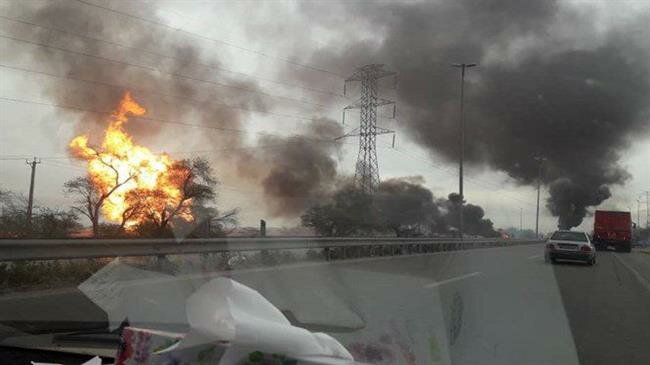
The blast was caused by gas leakage from a section of the pipeline between the cities of Ahvaz and Mahshahr, which exploded on Thursday, local officials reported.
At least five people have been killed and six others wounded in the blast, according to the officials.
The injured have been dispatched to a hospital in Ahvaz, the provincial capital.
Ali Torabpour, the fire chief in Ahvaz, said the number of casualties is expected to rise as the firefighters are still working at the scene to contain the blaze.







